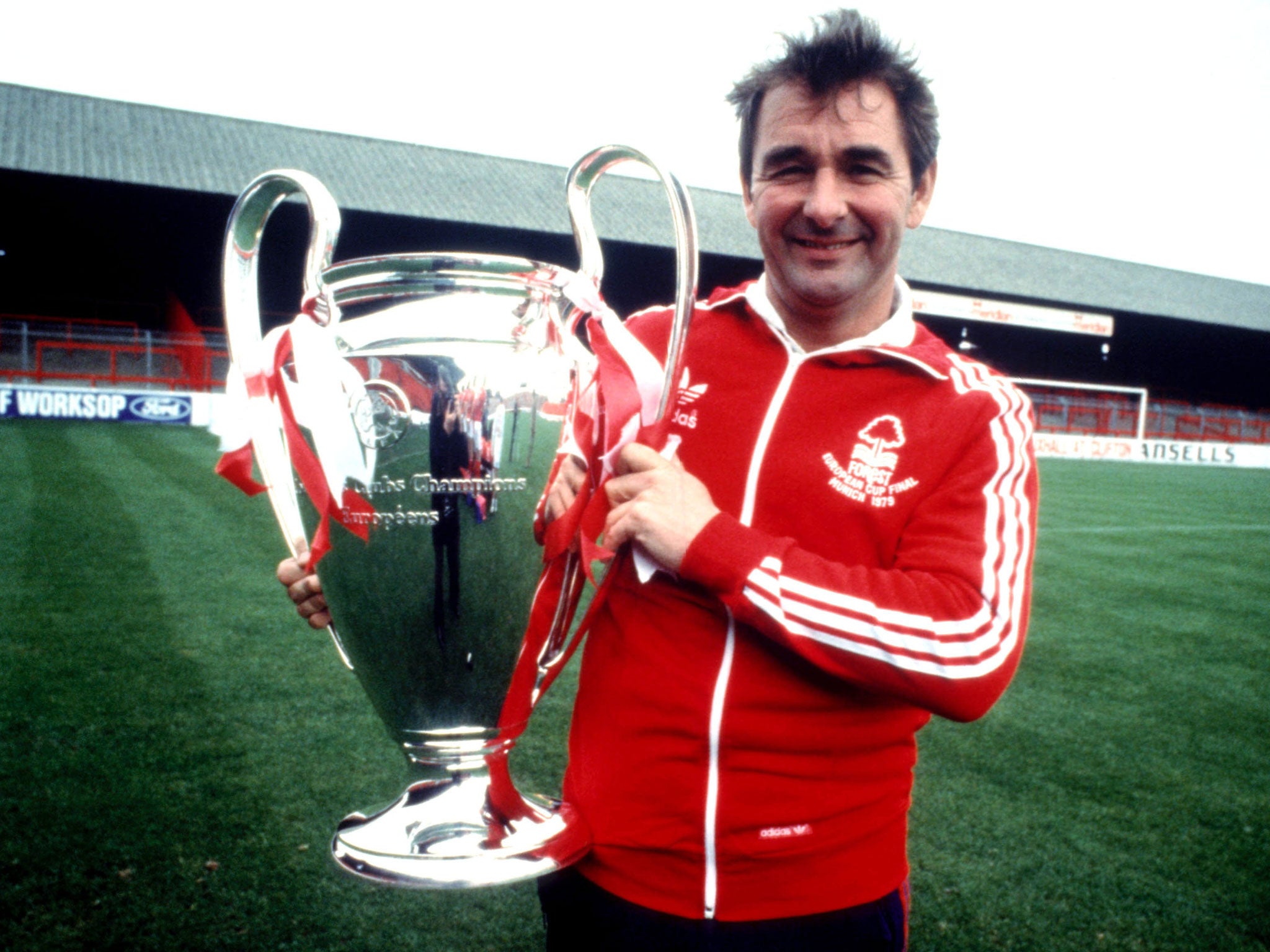I Believe in Miracles by Daniel Taylor, book review: Jose Mourinho is in need of some of Brian Clough's magic
The similarities between Mourinho and Clough are not quite as substantial as the Chelsea manager cares to think

Your support helps us to tell the story
From reproductive rights to climate change to Big Tech, The Independent is on the ground when the story is developing. Whether it's investigating the financials of Elon Musk's pro-Trump PAC or producing our latest documentary, 'The A Word', which shines a light on the American women fighting for reproductive rights, we know how important it is to parse out the facts from the messaging.
At such a critical moment in US history, we need reporters on the ground. Your donation allows us to keep sending journalists to speak to both sides of the story.
The Independent is trusted by Americans across the entire political spectrum. And unlike many other quality news outlets, we choose not to lock Americans out of our reporting and analysis with paywalls. We believe quality journalism should be available to everyone, paid for by those who can afford it.
Your support makes all the difference.Jose Mourinho, the Chelsea manager, would have us know that he sees similarities between himself and the late Brian Clough. "We would have got on," he suggests in his forward to a book which charts Clough's extraordinary achievements, taking Nottingham Forest into football's top domestic division and promptly winning the European Cup – twice – in the late 1970s.
The similarities are not quite as substantial as Mourinho cares to think. There is their common characteristic of bombast, though Clough deployed it to lasting effect while Mourinho has a habit of embarrassing his players with his own. That's one of the reasons why his Chelsea side are currently demotivated and struggling. Mourinho's modus operandi also includes working his players into the ground, in part because he never trusts the young ones enough to let them share the burden of matches. Clough's knowledge of when enough was enough led him to castigate any player he found training on a day off. He practised what he preached, too. His inclination to take his family off to Crete in mid-season saw him disappear off the radar at the most breathtaking moments. Not least, in the days before the first of the European Cup finals – against Malmö in Munich.
This story and a thousand others are threaded through a book in which Daniel Taylor, a master of the small details in his football journalism, puts us squarely back in the 1970s. Captain John McGovern plays his Fleetwood Mac tapes. The Forest fans taunt Liverpool to the tune of Boney M's "Brown Girl in the Ring". Those less sophisticated times left goalkeeper Peter Shilton a little uncertain about the menu at a sophisticated Nottingham restaurant. "I'll have some of the hors," he told the waiter. "But none of the d'oeuvre."
How did Clough do it? There is no template. This story cannot be told in one of Sir Alex Ferguson's management manuals because the method is undefinable.
The role of Clough's trusty assistant Peter Taylor, with whom he later fell out, is certainly unmistakeable. Clough told Taylor that there was no way he would sign Kenny Burns, the uncompromising Scot with a disciplinary record and a gambling habit. ("I don't want troublemakers. I don't want shithouses.") Taylor followed Burns to the dog track, incognito, reported that the gambling was moderate and ensured that they bought an individual who became a pillar of the team.
Clough had a way of making those boys want to run through walls. He put the fear of God in them, in some ways. And yet, there moments like the trip to Amsterdam for the European semi-final against Ajax. In keeping with Clough's insistence that such trips become "mini-breaks", there was a tour of the place on the night before the match. Clough deputed the youngest member of the squad – 18-year-old Gary Mills – to approach one window in the red light district and find out how much everything would cost, equipping him with pen and paper to make notes.
They were different days. The intrusion of sports science and £250,000-a-week contracts probably mean that what Clough accomplished back then would be unachievable today. Yet to read this phantasmagoria of a book is to yearn for what football has lost.
Headline. £16.99. Order at £15.29 inc. p&p from the Independent Bookshop
Join our commenting forum
Join thought-provoking conversations, follow other Independent readers and see their replies
Comments